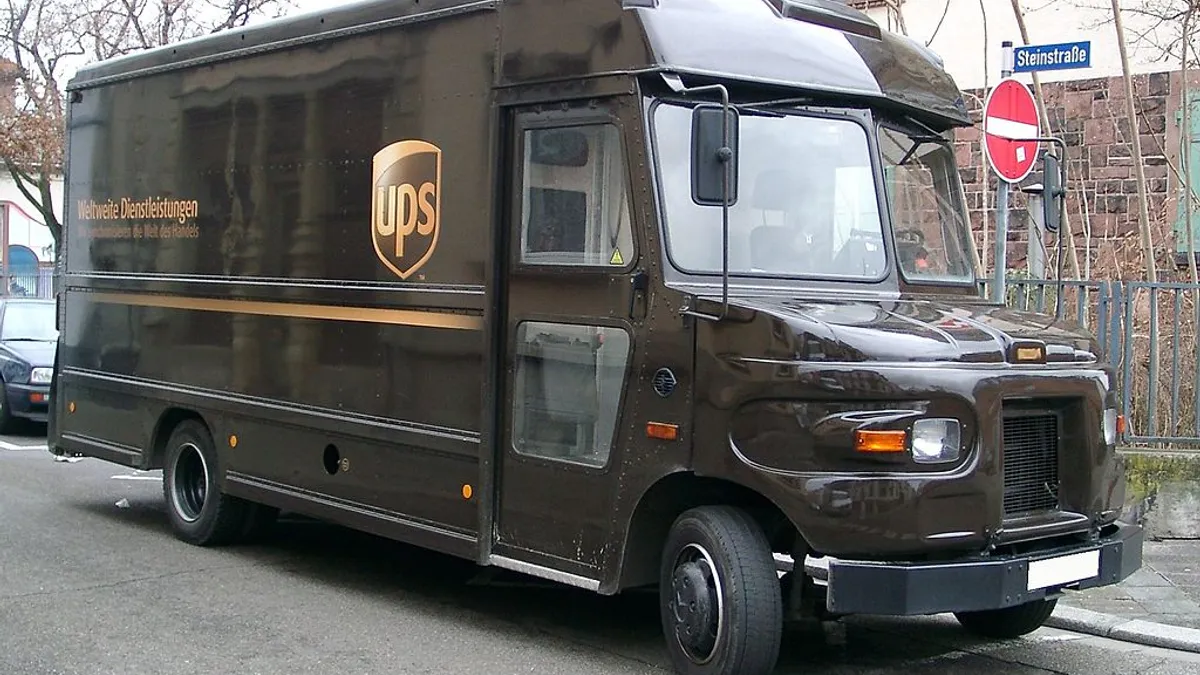Dive Brief:
- UPS announced in its Q4 2017 earnings statement its supply chain and freight profits jumped 16% in Q4 2017 — likely influenced by a strong holiday season — and total revenue for that segment rose a whopping 21% YoY.
- The 3PL also announced plans to invest $12 billion to expand its logistics network and an additional $7 billion in "new aircraft, new ground vehicles and IT platform improvements" over the next three years. UPS claims the investments will come as a result of savings from the tax law passed in December.
- CEO David Abney said in the earnings call UPS will purchase 14 new 747s and four new Boeing 767 Freighters due to increased demand, and President of U.S. Operations Myron Gray said UPS will break ground on three new U.S. hubs.
Dive Insight:
UPS is just the latest 3PL to announce positive forward-looking statements following the new tax law and a record-breaking holiday peak season, showing that the acceleration of e-commerce are benefiting the supply chain.
While C.H. Robinson's earnings focused on the increase in prices due to the trucking capacity crunch, UPS seems confident about the correlating rise in demand. While C.H. Robinson highlighted the tax cut that will benefit its Q1, UPS appears more confident about how it can expand and digitize in 2018.
"This year, you will see a significant shift in technology-enabled volume processing with the phase-in of much more highly automated capacity," Gray said in the earnings call. "In 2018, we’re adding 6 times more sorting capacity and 3 times as many car positions as we added last year."
Not only that, but UPS customers in 5,800 cities and towns will also receive more Saturday delivery options as UPS expands its network this year. That's big news for shippers working with UPS, and makes UPS appear a more attractive 3PL to companies looking for a broader reach.
Gray said one of the reasons for this massive expansion is the "constrained" 2017 peak season: the holiday surge was so strong and overwhelming for 3PLs such as UPS that deliveries for online orders were delayed, but now with its tax break, UPS is confronting that challenge head on.
The ability to handle the demands of e-commerce while maintaining tech-savvy are two important virtues in the logistics industry, and UPS is taking them in stride. That's a rosy 2018 outlook, and increases UPS' competitiveness as a logistics provider, especially as companies such as Amazon seek total control of their supply chains.












